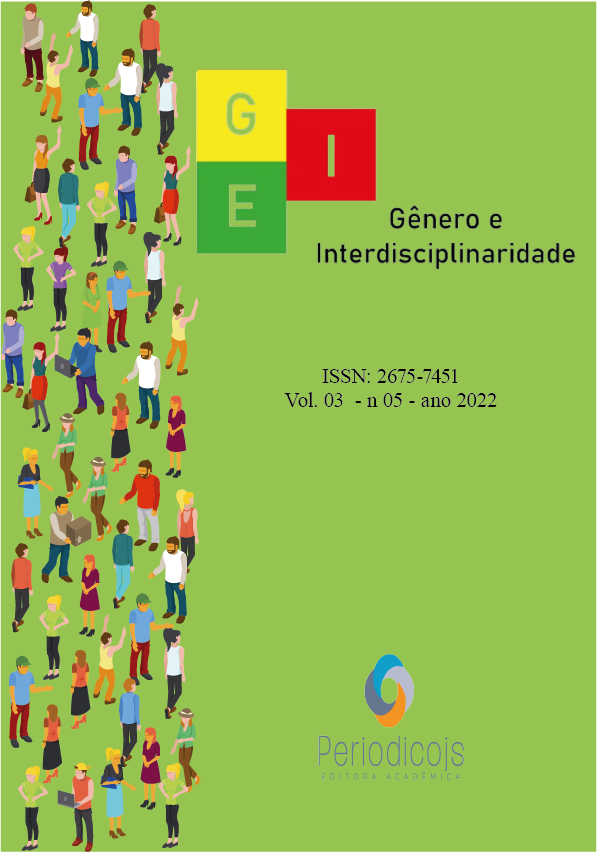Abstract
The present text named “Historical Paths of Public Policies for Education in the Brazilian Scenario with Emphasis on the Mais Educação Program”, is the result of a research developed at FICS - Interamericana Facultad de Ciencias Sociales of the Postgraduate Program in the Master of Science in Sciences. of Education - whose general objective is to analyze in a critical-reflexive way the Mais Educação Program, about the activities carried out at the Municipal School Benjamin Farah in the municipality of Bom Jesus da Lapa - BA. This is an excerpt from the dissertation carried out which deals with this theme in which, specifically, it has as its main function to identify the situation of the educational space and the service in relation to the offer of activities of the Mais Educação Program in the researched school. For this, the qualitative methodology was adopted as a guideline, which is engendered in the analysis of historical, hybrid, complex and antagonistic social phenomena that produce the most diverse social transformations. A priori, bibliographic sources were used in articles, texts and books to collect the necessary information and elaborate the guiding data of the research, as basic elements that historicize the context of the Mais Educação Program and the struggle for the effectiveness of this modality, as a public policy, which will enable the expansion of knowledge in line with what is prescribed. The research results reveal that the way in which the Mais Educação Program was implemented in the researched school needs adjustments to effectively serve the students with quality and carry out the actions in a significant way. In this work, paths are pointed out by which we believe that the PME can contribute to emancipation, as we believe that the transformation of this situation in which the students find themselves can only be carried out with the change of public educational policies and a more humanist and holistic view.
References
Ministério da Educação. Educação integral/educação integrada e(m) tempo integral: concepções e práticas na educação brasileira - Mapeamento das experiências de jornada escolar ampliada no Brasil. Brasília: MEC/SECAD, 2009a.
_______. Portaria Normativa Interministerial n° 17, de 24 de abril de 2007. Institui o Programa Mais Educação que visa fomentar a educação integral de crianças, adolescentes e jovens, por meio do apoio a atividades sócio-educativas no contraturno escolar. Diário Oficial da União, Brasília, DF, 26 abr. 2007b.
_______. Portaria Normativa Interministerial n° 19, de 24 de abril de 2007. Estabelece as diretrizes para cooperação entre o Ministério da Educação e o Ministério do Esporte, com o objetivo de definir critérios visando a construção de quadras esportivas ou infra-estrutura esportiva em espaços escolares. Diário Oficial da União, Brasília, DF, 26 abr. 2007c.
_______. MEC. Redes de Aprendizagem: boas práticas de municípios que garantem o direito de aprender. s. d.
_______. MEC. Plano de Desenvolvimento da Educação: Razões, Princípios e Programas. Brasília, DF: MEC, 2007f.
________. Rede de saberes mais educação: pressupostos para projetos pedagógicos de educação integral: caderno para professores e diretores de escolas. Brasília: MEC/SECAD, 2009b.
________. Educação integral: texto referência para o debate nacional. Brasília: MEC/SECAD, 2009c.
________. Programa Mais Educação – Passo a Passo. Brasília: MEC/SECAD, sd.
________. Manual da educação integral para obtenção de apoio Financeiro através do programa dinheiro direto na escola – Pdde/integral, no exercício de 2010. Brasília: SECAD/MEC, sd.
BRASIL. Ministério Da Educação. Programa Mais Educação – Passo a passo por Maria Eliane Santos, et al. Brasília: MEC – Secad., 2009a. Disponível em: . Acesso em 02 nov. 2019.
BRASIL. Ministério Da Educação. Série Mais Educação: Educação Integral. – Brasília: MEC – Secad., 2009b; BRASIL. Ministério Da Educação. Série Mais Educação: Gestão Intersetorial no Território. – Brasília: MEC – Secad., 2009c.
BRASIL. Ministério Da Educação. Série Mais Educação: Rede de Saberes Mais Educação – pressupostos para projetos pedagógicos de educação integral: caderno para professores e diretores de escolas. – Brasília: MEC – Secad., 2009d.
BRASIL. Ministério da Educação. Portaria n. 1.144, de 10 de outubro de 2016. Institui o Programa Novo Mais Educação, que visa melhorar a aprendizagem em língua portuguesa e matemática no ensino fundamental. Disponível em: Acesso em: 13 nov. 2019.
BRASIL. Ministério Da Educação. Decreto nº. 7.083, de 27 de janeiro de 2010, que dispunha sobre o Programa Mais Educação. Disponível em: . Acesso em: 15 out. 2019.
FERNANDES, Reynaldo. Índice de Desenvolvimento da educação básica (Ideb). Série Documental. Textos para Discussão (26). Brasília: Instituto Nacional de Estudos e Pesquisas Educacionais Anísio Teixeira, 2007, 26 p.
MOLL, Jaqueline. Município que educa: nova arquitetura da gestão pública. São Paulo: Editora e Livraria Instituto Paulo Freire (Ed,L), 2009.
______, Jaqueline. A agenda da educação integral: compromissos para sua consolidação como política pública. In: MOLL, Jaqueline (org). Caminhos da Educação Integral no Brasil: direito a outros tempos e espaços educativos. Porto Alegre: Penso. 2012.
NEVES, Lúcia Maria Wanderley. Educação e política no Brasil de hoje/ Lúcia Maria Wanderley Neves/ São Paulo: Cortez, 1994.
PARENTE, C. da M. D. Construindo uma Tipologia das Políticas de Educação Integral em Tempo Integral. Roteiro, Joaçaba, v.41, n.3, pp.563-586, set./dez. 2016.
SAVIANI, Dermeval. O legado educacional do “breve século XIX” brasileiro. In: SAVIANI, Dermeval; ALMEIDA, J. S.; SOUZA, R. F. de; VALDEMARIN, V. T. O legado educacional do século XIX. Campinas: Autores Associados, 2006.
______, C. SAVIANI, Dermeval (2011a), Pedagogia histórico-crítica: primeiras aproximações, 11ª ed. Campinas: Autores Associados.
SOARES, M. Letramento e alfabetização: as muitas facetas. In: Alfabetização, leitura e escrita. 26ª Reunião Anual da ANPED – GT Alfabetização, Leitura e Escrita. Poços de Caldas, 7de outubro de 2003.
________. Letramento e escolarização. In: UNESP. Cadernos de formação: Alfabetização. São Paulo: UNESP, p. 79-98, 2003.
________. Alfabetização e letramento. 6 ed. São Paulo: Contexto, 2011.
TEIXEIRA, A. (1994). Educação não é privilégio. Rio de Janeiro: Ed. UFRJ. (Original publicado em 1957)
TRIVIÑOS, A. N. S. Introdução à pesquisa em ciências sociais: a pesquisa qualitativa em educação. 1. ed. – 19. reimpr. – São Paulo: Atlas, 2010.





